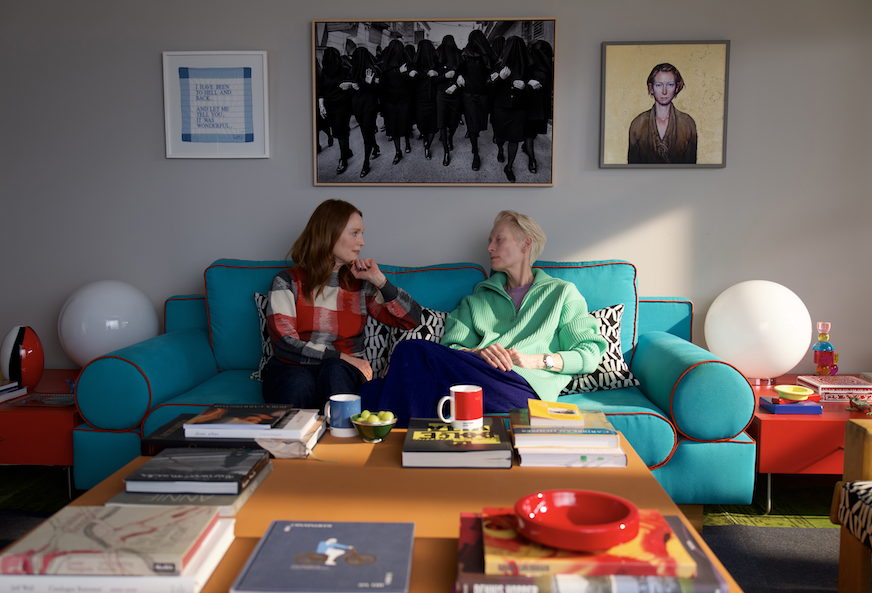The Room Next Door: Why Pedro Almodóvar resisted ‘temptation’ of lesbian storyline: ‘I decided against it’
"You’re actually the first person to talk to me about this topic" the director told Attitude during a recent interview

Pedro Almodóvar has revealed he decided against the “temptation” to add an overtly lesbian storyline to his new film, The Room Next Door.
Indeed, while many of the Spanish auteur’s previous films – from Pain and Glory to All About My Mother to Bad Education – directly explore LGBTQ themes, his latest offering is more ambiguous.
In the Oscar-tipped movie, Tilda Swinton and Julianne Moore play old friends who reconnect when Tilda’s character nears the end of her life.
While the pair’s reconnection is passionate, it is seemingly platonic – although Almodóvar recently told Attitude that it is an “almost romantic relationship” that could potentially “become” love.
“I had the temptation to make them lovers” – Pedro Almodóvar
“It is true that there is this great intimacy that only grows across the course of the film between these characters,” the 75-year-old told Attitude last month. “It not only could be confused with love, but it could also potentially become love between them.”

“I thought it would be more original not to do so”
The former Attitude cover star later added: “It is true, actually, that at some point during the writing of the script I had the temptation to make the women two lovers, and in the end, I decided against it. I felt it would be more original not to do so. You’re correct that there is this almost romantic relationship between them.”
Elsewhere, he points out that the characters “don’t have to deal with the inconveniences that a physical kind of love would pertain”.
Attitude’s question to Almodóvar
“The film got me thinking about ‘romantic friendships’, and the way Ingrid and Martha love each other passionately and form this partnership at this crucial time. I’m queer, and while I wouldn’t call the film ‘queer’, it still appealed to my queer sensibilities, and I hope it opens people’s minds about when it comes to who we’re allowed to connect to. What other responses have you had from LGBT viewers?”
Almodóvar’s answer
“You’re actually the first person to talk to me about this topic. It is true that there is this great intimacy that only grows across the course of the film between these characters. It not only could be confused with love, but it could also potentially become love between them. They don’t have to deal with the inconveniences that a physical kind of love would pertain. Really, what the movie is trying to talk about is the immense capacity we have to have just to sit by someone. To accompany someone. Even if it’s in silence. It’s a gift we can give each other. It is true, actually, that at some point during the writing of the script I had the temptation to make the women two lovers, and in the end, I decided against it. I felt it would be more original not to do so. You’re correct that there is this almost romantic relationship between them. Tilda does say this: it’s not possible anyone could have loved her as much as Julianne’s character loved her. … For me, at the end of the film, Tilda is almost reincarnated in Julianne’s character, to the point where she gets to tell the daughter things Martha never told the daughter. When we see her in that last scene with the cop, that toughness, it’s really about the way she assumed some of Tilda’s characteristics.”
Almodóvar also discussed the use of bright colour in The Room Next Door, telling Attitude: “I didn’t want to have a dark veil over the film. It was a film in which I really wanted to express vitality, particularly Tilda’s. I really wanted to [make] an optimist’s film.
“This is ultimately a film about someone who has made a decision. It becomes a lesson for Julianne’s character, who changes throughout the film, and learns to enjoy every single moment, and to live in the moment.”
The Room Next Door hits UK cinemas on Friday 25 October 2024.
